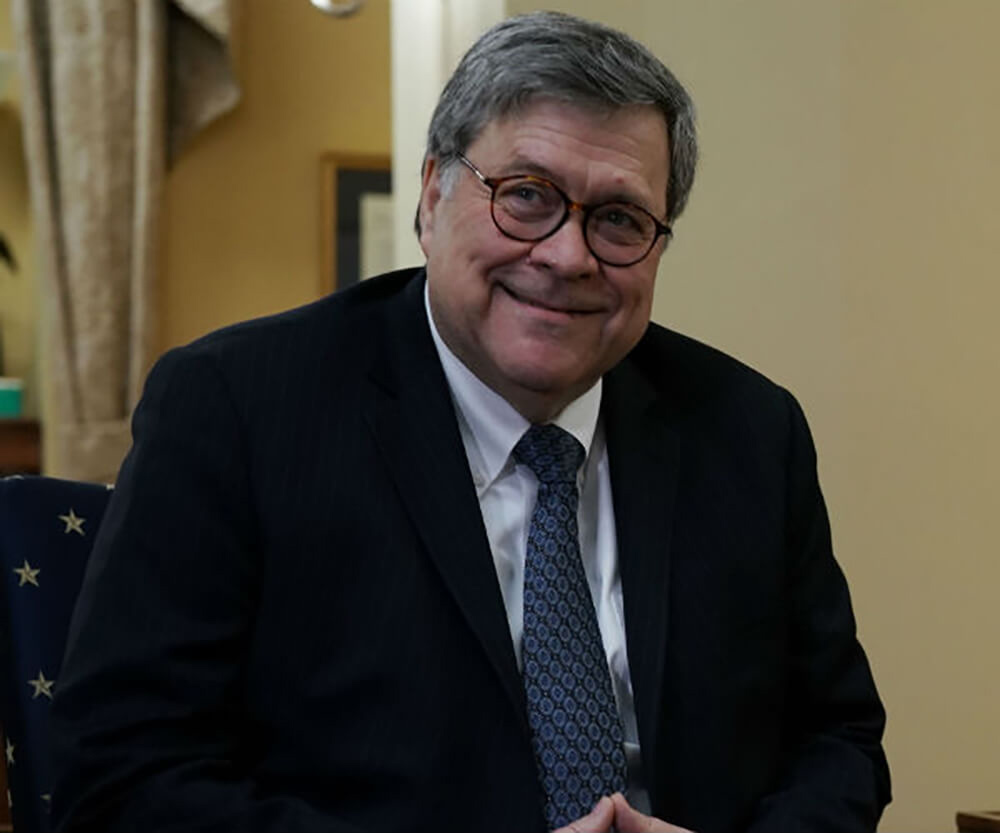Attorney General William Barr appeared before Congress on Wednesday to defend his handling of special counsel Robert Mueller’s March 22 report on Russian meddling in the 2016 U.S. election, saying the decision to release an early summary of the report was his and dismissing questions about his depiction of Mueller’s findings.
By: Masood Farivar
In a hearing marked by partisan acrimony, Democrats grilled the attorney general over his four-page summary letter to Congress and Mueller’s subsequent complaint about the summary.
Democrats accused Barr of grossly understating evidence of President Donald Trump’s misconduct in the summary in an effort to justify his controversial decision to exonerate the president of obstruction of justice during the investigation.
“It was my baby whether or not to disclose it to the public,” Barr told the Senate Judiciary Committee. “I determined that it was in the public interest for the department to announce the investigation’s bottom-line conclusions — that is, the determination of whether a provable crime has been committed or not.”
Much of the hearing focused on a letter Mueller wrote to Barr on March 27 in which the special counsel complained that Barr’s summary “did not fully capture the context, nature, and substance” his office’s work and conclusions and urged the attorney general to release the report’s executive summaries without delay.
In a subsequent phone call, Barr said, the special counsel expressed concern about how his findings were being portrayed in the media. However, he said Mueller did not characterize the summary as either “misleading” or “inaccurate.”
Barr said he turned down the special counsel’s request because he did not want to release “additional portions of the report in piecemeal fashion, leading to public debate over incomplete information.” The Justice Department released a redacted version of the 448-page report on April 18.
The special counsel wrote in his final report that the evidence was not sufficient to charge any Trump campaign member with conspiring with Russian government representatives to meddle in the 2016 election, but the office did not draw conclusions about whether the president had obstructed justice.
That left it to the attorney general “to determine whether the conduct described in the report constituted a crime,” Barr wrote in his March 24 summary letter to Congress, adding that he and his No. 2, outgoing Deputy Attorney General Rod Rosenstein, had examined the evidence and determined that it was not enough to support obstruction charges against Trump.
Barr defended his decision, saying the lack of “an underlying crime” — in this case, the absence of a criminal conspiracy between Trump and Russia — made it difficult to prove Trump’s “criminal intent,” which is key in proving obstruction of justice.
Asked by the committee chairman, Republican Sen. Lindsey Graham of South Carolina, if he “felt good” about his decision, Barr responded, “Yes.”
The Mueller report examined 11 instances of potential obstruction of justice, including an attempt by Trump in June 2017, just weeks after Mueller’s appointment, to get the special counsel fired, and then get his then-White House counsel, Don McGahn, to deny a newspaper account about it.
But Barr defended the president’s right to fire a special counsel and said none of the episodes documented by Mueller constituted obstruction of justice. And when Democrats pressed him to denounce the president for getting underlings to lie on his behalf, Barr demurred.
“I’m not in the business of determining when lies are told to the American people,” Barr said. “I’m in the business of determining whether a crime has been committed.”
Barr, a former attorney general in the administration of the late President George H.W. Bush in the 1990s, returned to the Justice Department in February after Trump tapped him last year to replace his first attorney general, Jeff Sessions, whom he fired in November.
Barr’s confirmation hearing was dominated by questions about his expansive views of presidential powers and his past criticism of the Mueller investigation. In a 19-page memo last June to Rosenstein, who then oversaw the Russia investigation, Barr called the special counsel’s obstruction investigation “fatally conceived.”
Democrats accused Barr of bias.
“You’re biased in the situation and you’ve not been objective,” said California Democratic Sen. Kamala Harris, a 2020 presidential candidate.
Republicans came to Barr’s defense, with Sen. Ted Cruz of Texas accusing Democrats of impugning the attorney general’s integrity.
Barr was also widely criticized for holding a news conference to discuss the findings of the Mueller report hours before either members of Congress or journalists had a chance to read it.
The attorney general told reporters that the special counsel’s probe did not find that Trump or anyone in his campaign had coordinated with Russia in its efforts to influence the 2016 election, and that later, after he assumed power, Trump had “no corrupt intent” to obstruct the probe.
Barr said the president “took no act that in fact deprived” Mueller of “documents and witnesses necessary to complete his investigation.”
The Justice Department informed the House Judiciary Committee on Wednesday night that Barr would not testify at a planned hearing Thursday. This raises the prospect that Democrats will hold the nation’s top law enforcement official in contempt of Congress. (VOA News)





